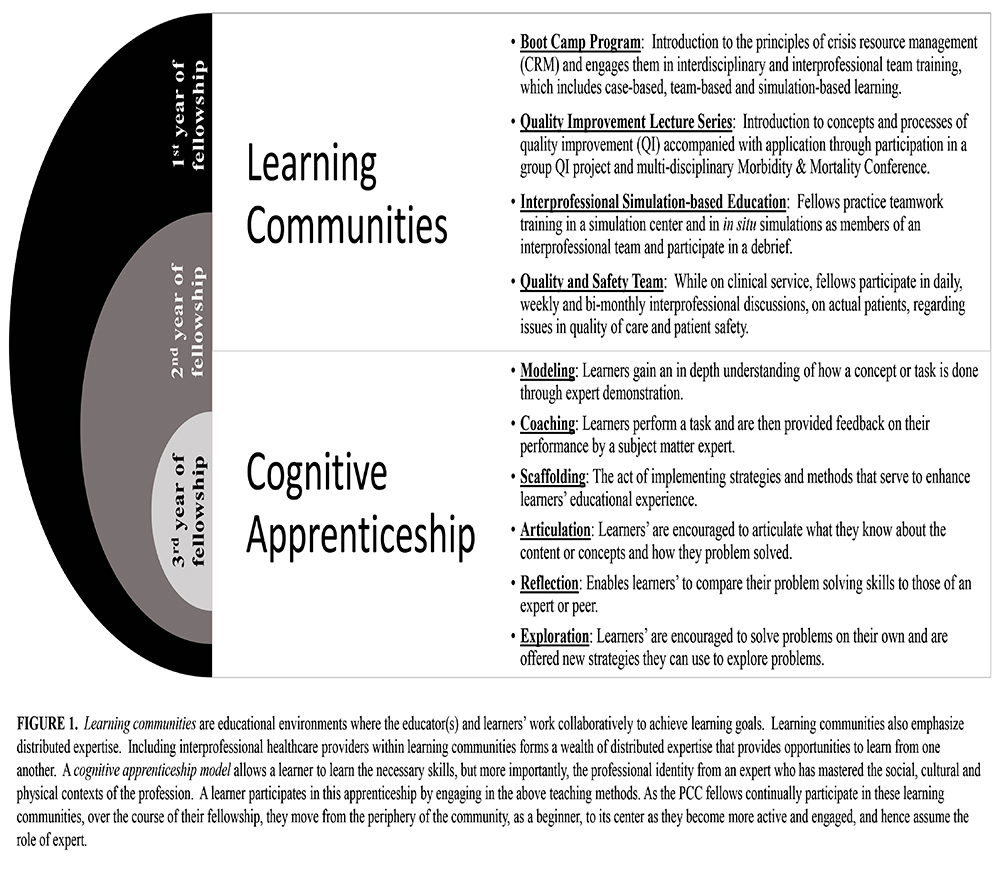Baylor College of Medicine
Houston, TX
Program Director: M. Hossein Tcharmtchi, MD
Type of Program: Pediatric Pulmonary and Critical Care Medicine
Abstract Authors: Danny Castro, DO; Kevin Roy, MD; Eric Williams, MD, MMM; Julia Lawrence, RRT, MSHP; Melissa Cashin, RN, MSN; Tessy Thomas, DO; Karla Abela, RN, MSN; Satid Thammasitboon, MD, MHPE; and M. Hossein Tcharmtchi, MD
RATIONALE/PURPOSE
Team-based care delivery and redesigning systems are critical to achieving care that is patient-centered, safe, efficient, and more effective. Health care professionals are educated in silos, ill-preparing them for the current realities of everyday practice. After graduation they are thrown into complex systems and expected to function as part of a team, engaging in shared decision-making1,2. Interprofessional education has lagged behind changes in clinical practice, resulting in a widening gap between current health professions training and actual needs for health care delivery1,2. These issues are especially evident in the intensive care unit (ICU) as teamwork is a vital component to this high-stakes environment. We developed an interprofessional curriculum (IPC) with the purpose of having Pediatric Critical Care (PCC) fellows understand the importance of interprofessional teamwork and how that relates to safe and quality patient care and being able to practice team skills and behaviors.
METHODS
Physician, nursing, respiratory care, and pharmacy leaders supported this interprofessional curriculum and were involved in the development and implementation, which included the critical steps of assessing needs, prioritizing content, developing goals and objectives, and employing adult learning theories3,4. The situated cognition theory centers on the position that optimal knowledge acquisition occurs when it is learned within the social, cultural, and physical contexts in which it will be used. More specifically, we created learning communities and incorporated the cognitive apprenticeship model to foster interprofessional learning within the curriculum5,6 (Figure 1).
EVALUATION
A systematic program evaluation has informed program improvement over the course of 5 years. The focus of initial program evaluation was to assess the practical implications of situated cognition: ensuring a safe environment for delivering feedback, assessing if learners valued the opportunity to engage in discussions with interprofessional peers/ educators, and assessing the realism of simulated experiences in order to ensure the authenticity of context. Learners’ perceptions to these items for 2 of the 4 learning communities are shown in Tables 1a and 1b. Future phases of evaluation aim to assess learners’ participation in all the stages of the cognitive apprenticeship model and to assess team performance using interprofessional competencies1-3.
CONCLUSIONS
We described the multi-year development of a theory-informed IPC. Within the framework of situation cognition theory, learners perceived the learning communities to be safe, non-threatening, and ideal for receiving feedback. Learner’s perceived the simulated experiences to be realistic and also valued the opportunity to engage in interprofessional teamwork and collaboration.



REFERENCES
- Interprofessional Education Collaborative Expert Panel. (2011). Core competencies for interprofessional collaborative practice: Report of an expert panel. Washington, D.C.: Interprofessional Education Collaborative.
- Interprofessional Education Collaborative Expert Panel. (2011). Team-based Competencies-Building a Shared Foundation for Education and Clinical Practice: Conference Proceedings. Washington, D.C.: Interprofessional Education Collaborative.
- Boet S, Bould MD, Burn CL, Reeves S. Twelve tips for a successful interprofessional team-based high-fidelity simulation education session. Med Teach. 2014; 36: 853-7.
- Kern, David. Curriculum Development for Medical Education: A Six-Step Approach. 2nd ed. Baltimore: John Hopkins UP, 2009. Print.
- Driscoll, Mary P. Psychology of Learning for Instruction. 3rd ed. Boston: Pearson Education, 2005. Print.
- Pappas, Christopher. “Instructional Design Models and Theories: The Situated Cognition Theory and the Cognitive Apprenticeship Model - ELearning Industry.” ELearning Industry: Instructional Design, 07 June 2015. Web. 27 Oct. 2015.



